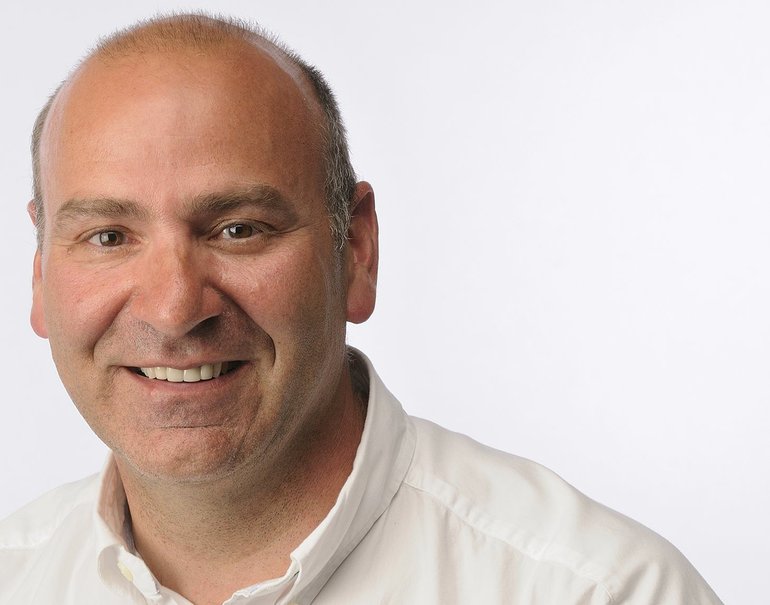Republican Paul Akers says he knows how to eliminate the federal deficit and create a leaner, more efficient government based on his belief that people are natural problem-solvers and that “money stifles creativity.”
Akers, a Bellingham inventor and entrepreneur, says he is running for the U.S. Senate because he’s confident that what he’s accomplished in the private sector can work in the government realm as well.
He decided to enter the race after seeking the opinion of political insider Dick Morris last December about whether a candidate with his background — a political novice who started a business from scratch 13 years ago and grew it even during the recent recession — could win a U.S. Senate seat. After hearing his story, Morris gave him the thumbs-up, he said — and didn’t even charge him for the advice.
Though he’s not as well-known around the state as former state senator Dino Rossi or Clint Didier, the other leading Republicans hoping to challenge Democratic U.S. Sen. Patty Murray in November, Akers’ poll numbers indicate he’s still in the running.
A recent Rasmussen Reports poll indicated he would win 38 percent of the vote to 47 percent for Murray in a hypothetical match-up. Rossi polled even with Murray at 47-47; Didier, the alfalfa farmer and former pro football player who has been endorsed by Sarah Palin, polled 40 percent to 48 percent for Murray.
Akers owns a plane and has been flying around the state, visiting cities and towns, giving radio interviews and buying TV ads. His campaign is largely self-financed, and he said he isn’t seeking endorsements; instead, he’s counting on word of mouth, asking supporters to tell their friends about him.
Akers’ company, FastCap, makes woodworking tools and equipment. It started small, literally, developing a product to cover screw holes inside cabinets, and now launches 20 to 30 new products a year.
During the recession, Akers’ goal for the company was to keep it going, not lay anyone off, and prosper, Akers said in an interview with The Columbian.
He turned to the principles of “lean thinking,” in which an organization creates more values for its customers with fewer resources by minimizing waste and tapping the creativity of its workers.
At FastCap, “We went into every line item and cut 25 to 50 percent, “ Akers said. “We cut hundreds of thousands of dollars out of advertising and legal fees. We didn’t lay off a single person” in his workforce of 43 employees and 40 outside sales people. “We had so much more flexibility, we could actually hire more people.”
If he could do that, government can do it, too, he contends.
“There’s waste in everything we do. People start making small improvements every day. This is what I did in my company,” Akers said.
“Lean thinking” was developed in the postwar 1940s and helped Japan become an economic powerhouse, Akers said. “After the war, the U.S. was so prosperous that we abandoned lean thinking for abundance.”
It’s been used, he says, by Boeing, Harley Davidson, Southwest Airlines, Group Health and the sheriff of Jacksonville, Fla., who enlisted his staff and inmate labor to expand the capacity of the county’s crowded jails without building a new jail the county couldn’t afford.
Akers’ “10-3-Lean” plan for eliminating the federal deficit is to cut the federal income tax and cut federal spending across the board by 10 percent in each of three consecutive years. “It would balance the budget in two and a half years,” he said.
As for the lean part, he’d put a “lean thinker’” in every federal agency, who would begin to teach small groups of people to eliminate waste and tap their own creative ideas. In fact, he says, Lean has already made its way into many layers of government.
If Akers sounds like a proselytizer, he doesn’t mind. He admits he’s an eternal optimist.
“I’ve never met a human who didn’t want to be validated,” he said. “The only impediment is lack of vision. “
As for his qualifications to be a U.S. senator, he said, “I’m an innovator. I’m always looking for creative solutions that encompass simplicity, not complexity.”
Kathie Durbin: 360-735-4523 or kathie.durbin@columbian.com.



